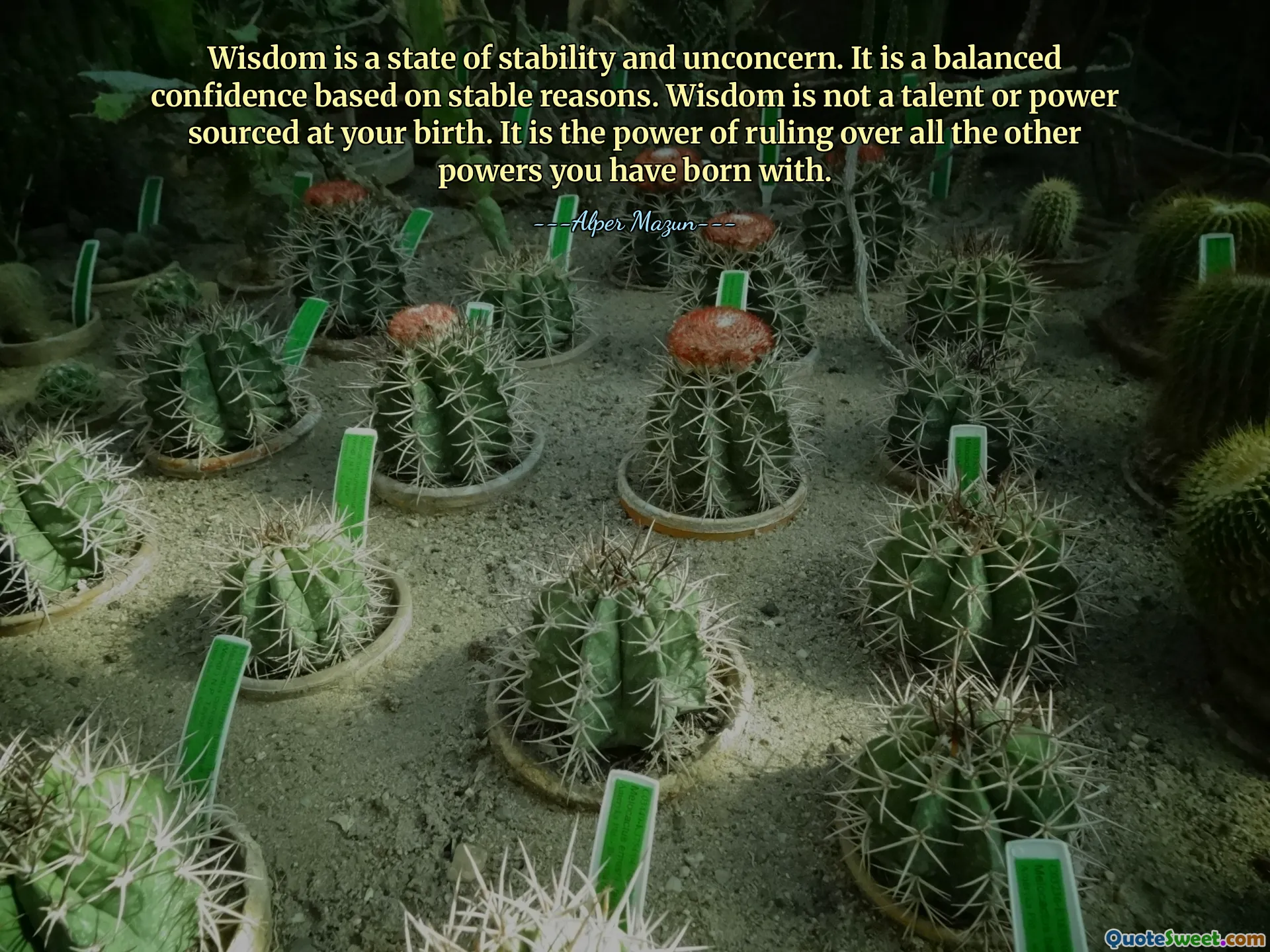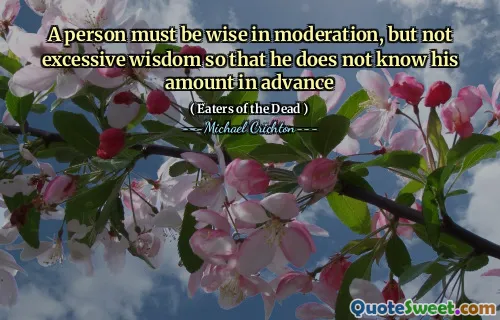
Wisdom is a state of stability and unconcern. It is a balanced confidence based on stable reasons. Wisdom is not a talent or power sourced at your birth. It is the power of ruling over all the other powers you have born with.
Alper Mazun emphasizes that wisdom is fundamentally about inner stability and a calm state of mind that is unshaken by external circumstances. This perspective suggests that true wisdom is not merely knowledge or talent garnered through innate ability or early life advantages but is rooted in a balanced confidence that stems from consistent reasoning and understanding. The notion that wisdom provides the ability to govern and master one's innate powers indicates a form of self-mastery that is cultivated over time through deliberate reflection and judgment. In a world saturated with information and transient trends, the essence of wisdom as described here acts as an anchor, guiding individuals towards rational and composed decision-making. It fosters resilience, enabling people to navigate uncertainties without panic or impulsiveness. The idea that wisdom involves ruling over all other inherent powers suggests an internal hierarchy—where rational judgment governs emotional reactions, instincts, and impulses. This internal governance upholds harmony and stability within a person, which ultimately leads to responsible and effective leadership, both of oneself and potentially others. The quote underscores the importance of deliberate cultivation of wisdom, highlighting that it is a skill or disposition that can be developed rather than a fixed trait. Living with wisdom involves awareness, discipline, and a commitment to understanding the deeper causes behind external phenomena, choosing to maintain equilibrium rather than being carried away by fleeting passions or superficial knowledge. This insight resonates deeply because it challenges us to look inward and emphasize the growth of our rational capacities to achieve true mastery of ourselves and our lives.











